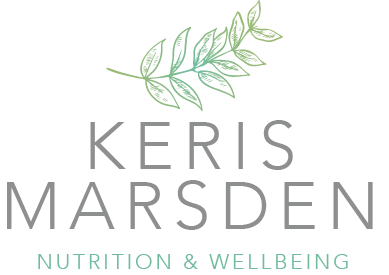Battling a bad gut? Here’s your options
If you have ongoing digestive issues, it’s important to seek professional medical advice.
It’s vital you make your GP aware of your symptoms as they may wish to run some digestive related tests and send you for diagnostic investigations or refer you to a specialist.
In addition to this you may decide to seek the support of a registered Nutritionist to discuss nutrition adaptions and supportive supplements.
You can contact me for a free 15 minute call to discuss your symptoms and hear about my approach to resolving digestive issues.
Visiting your GP
Your GP may wish to run some blood or stool tests that can be helpful including:
Calprotectin and/or qFIT to look at inflammation and blood in the stool
Stool analysis to assess infections like campylobacter, salmonella or Giardia
Coeliac screen
Thyroid dysfunction (both under and over active thyroid may cause digestive issues)
Blood tests to check Iron, B12 and Vitamin D which can all impact digestive health
Blood tests to screen for autoimmune complications
Test for H Pylori
Test liver and pancreatic function
They may also suggest medications including anti-spasmodic, antibiotics or reflux medications.
If your symptoms persist and don’t respond to basic interventions they will likely refer you to a gastroenterologist.
What can a gastroenterologist do?
Gastroenterologists usually implement more diagnostic investigations.
These can be helpful to assess inflammation, ulcers, structural abnormalities like polyps or hernias, issues with sphincters (for example oesophageal sphincter dysfunction may cause reflux)
The tests commonly conducted include:
A breathe test for Small intestinal Bacterial Overgrowth (a common cause of IBS< bloating and constipation)
Endoscopy (camera down the throat to assess the stomach and small intestine)
Brava pH Test (to assess for acid reflux)
pH Impedance tests (to assess for non-acid reflux – usually pepsin and bile)
Colonoscopy (camera in the bowel to assess large intestine)
MRI or CT scans of stomach, intestines, liver, gallbladder or pancreas
Breath test for H Pylori infection
Typically you’ll be offered medication depending what the tests reveal.
One of the downsides of medical advice is it’s often limited when it comes to diet.
Avoiding gluten, lactose, coffee and FODMAPs is about the most my clients have received as part of conventional treatment.
They also identify the role of stress and nervous system dysfunction and may often suggest anti-depressants or anti-anxiety medication, typically Sertraline, Amitriptyline or Nortriptyline.
Nutritional therapy support
Nutrition therapists receive extensive training in digestive wellbeing.
A consultation will generally be 60-90 minutes long to enable the practitioner to obtain a full health history, understanding of your symptoms and investigate possible causes of your digestive issues.
A nutritionist will usually recommend:
Personalised dietary changes and helpful eliminations
Evidence based nutritional supplements, typically digestive enzymes, herbs, probiotics, fibre supplements or certain vitamins and minerals to support your digestive system
Appropriate tests including a microbiome tests analysing stool, vaginal or oral microbial balance.
Breath tests if needed to assess for conditions like small intestinal bacterial overgrowth.
Lifestyle advice to help manage stress and improve sleep
Positive gut habits that can support the gut-brain connection
Look for a nutritional therapist registered with BANT (British Association For Nutrition And Lifestyle Medicine) as this is the leading professional body for Registered Nutritional Therapy Practitioners in one-to-one clinical practice.
Other supportive treatments for your gut
You may also benefit from seeking help from integrated health practitioners to compliment any medical advice you’ve received.
This includes:
• CBT, meditation and mindfulness to support the gut brain access
• Herbal medicine: look for a practitioner registered with a professional body like the National Institute of Medical Herbalists or the Association of Traditional Chinese Medicine and Acupuncture UK (ATCM)
• Visceral osteopathy is a style of hands on therapy that gently adjusts the body’s inner organs. Releasing tension around the organs improves function and may alleviate symptoms. Look for a qualified osteopaths registered with the General Osteopathic Council.
• Acupuncture can be highly beneficial as a whole person treatment for digestive issues. By improving emotional, physical and mental wellbeing it can help relieve chronic constipation, nausea, bloating and diarrhoea.
If you’d like to explore working together simply book a free 15 minute call with me and we can chat further.

